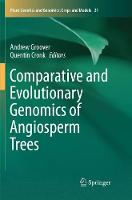Mechanistic Benefits of Microbial Symbionts
 -15%
portes grátis
-15%
portes grátis
Mechanistic Benefits of Microbial Symbionts
Hurst, Christon J.
Springer International Publishing AG
06/2016
315
Dura
Inglês
9783319280660
15 a 20 dias
6151
















